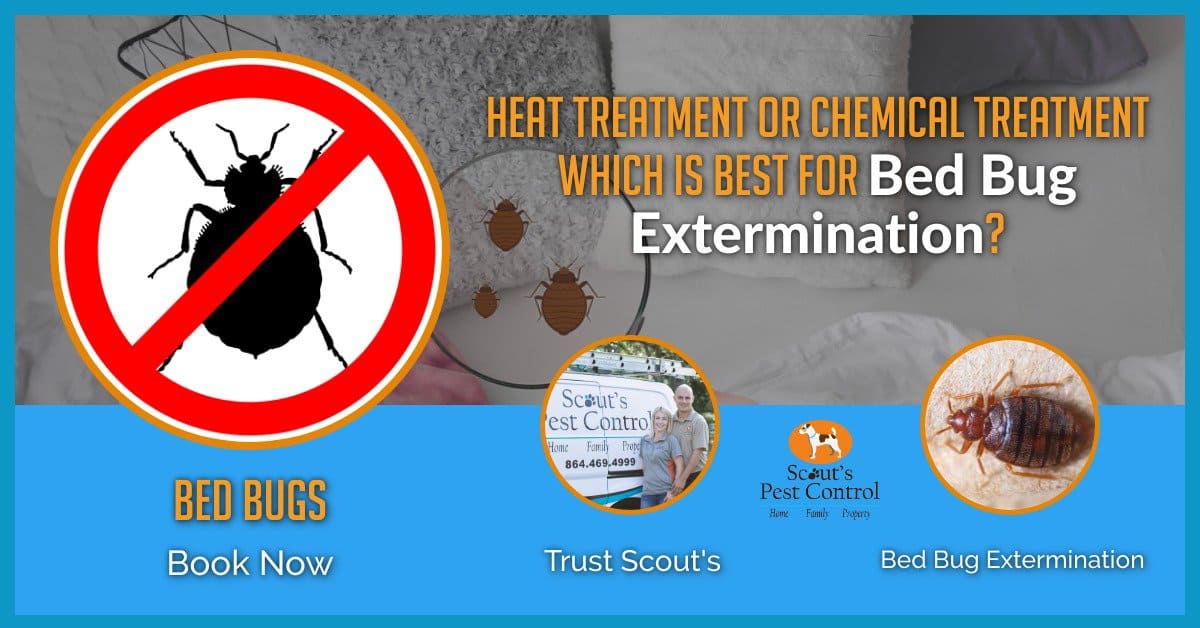Sorts Of Parasite Control: Which Method Is Right for Your Infestation?
When confronted with a pest infestation, the choice of an appropriate approach for parasite control is crucial in successfully handling the scenario. From chemical treatments to organic options, there exists a variety of methods that can be utilized to deal with different kinds of parasites. Each technique comes with its very own collection of considerations and advantages, making the decision-making process a nuanced one. Understanding the subtleties of each strategy and assessing their compatibility with the particular bug problem available is necessary for achieving long-term success in parasite administration. By exploring the numerous kinds of insect control approaches offered, people can make educated decisions customized to their one-of-a-kind scenarios, making certain a more sustainable and effective outcome in pest obliteration.
Chemical Bug Control
Chemical pest control involves using synthetic or normally derived chemicals to handle and remove pest populaces successfully. This technique is frequently utilized in agriculture, forestry, and property settings to fight a vast array of bugs, including rats, pests, and weeds. The usage of chemical pesticides can supply quick and targeted options to pest invasions, making it a prominent selection for several people and companies.
Among the essential advantages of chemical parasite control is its ability to promptly eliminate parasites, decreasing the risk of damage to crops, residential property, and human health and wellness. By using certain chemicals that target particular pests, this approach can efficiently control problems while lessening injury to valuable organisms and the environment when applied correctly.
Nonetheless, the use of chemical insect control additionally increases problems regarding prospective adverse impacts on non-target species, water resources, and human wellness. It is vital to comply with safety and security guidelines, use chemicals responsibly, and think about alternate bug control approaches to minimize these dangers and guarantee lasting parasite administration methods.
Biological Insect Control
Organic insect control, likewise recognized as biocontrol, utilizes living microorganisms to handle and decrease insect populaces normally. By using the insect's natural predators or pathogens, biological parasite control supplies a environmentally friendly and lasting option to pest monitoring.

Mechanical Insect Control
Making use of hands-on and physical techniques to manage pest populations, mechanical bug control offers a different method that does not depend on making use of living microorganisms or artificial chemicals. This technique entails the usage of barriers, catches, or other tools to literally prevent or get rid of bugs. By obstructing bug entry factors or establishing up traps to catch them, mechanical parasite control can efficiently minimize problems without introducing chemicals into the setting.
One common example of mechanical pest control is using mesh displays on doors and windows to stop pests from going into structures. This basic yet effective method functions as a physical obstacle, keeping pests out while enabling for correct ventilation. In addition, devices like mousetraps, fly swatters, and ultrasonic repellents drop under the mechanical insect control category.
While mechanical bug control techniques can be labor-intensive and require regular monitoring and maintenance, they offer a lasting and ecologically pleasant service for taking care of insect invasions. By incorporating various mechanical techniques, property proprietors can develop a detailed parasite control approach that lessens dependence on chemical pesticides.
Physical Insect Control

Some typical physical insect control methods include making use of barriers such as screens or internet to protect against insect access, catches to catch and get rid of pests, and hand-picking to literally remove parasites from plants or structures. In addition, methods like warmth treatments can be used to control parasites like bed insects by increasing the temperature level to degrees that are dangerous to the insects.
Physical insect control is specifically helpful in incorporated bug management (IPM) techniques, where several pest control methods are incorporated for efficient pest management while decreasing using chemicals. By utilizing physical insect control techniques, people can effectively resolve insect infestations with marginal environmental effect.
Integrated Insect Management
When carrying out physical insect control approaches as component of insect monitoring methods, Integrated Insect Monitoring (IPM) arises as a thorough strategy that leverages numerous strategies to successfully control pest populations. IPM concentrates on lasting prevention of pests through a mix of biological, cultural, physical, and chemical devices tailored to certain parasite problems. By integrating several control strategies, IPM aims to reduce the risks related to parasites while also decreasing reliance on chemical solutions.
One secret element of IPM is the emphasis on monitoring and assessing pest populaces to determine one Click Here of the most appropriate control methods. This aggressive strategy enables very early treatment and targeted methods, causing extra reliable parasite monitoring. Additionally, IPM promotes eco friendly techniques by prioritizing non-chemical control approaches and just using chemicals as a last resource.
Final Thought

By making use of the parasite's natural killers or virus, biological pest control supplies a environmentally friendly and sustainable service to pest management. - Kings pest control services Cincinnati oh
Using hands-on and physical methods to handle insect populaces, mechanical pest control provides an alternative technique that does not depend on the usage of living microorganisms or synthetic chemicals.An effective strategy to managing pest populaces without relying on chemical or organic approaches entails the use of physical bug control methods.When applying physical parasite control methods as part of pest administration techniques, Integrated Insect Management (IPM) arises as a comprehensive strategy that leverages different techniques to successfully manage pest populaces. Chemical bug control involves the usage of pesticides, organic insect control makes use of all-natural killers, mechanical bug control involves physical obstacles, physical parasite control includes trapping or eliminating parasites, and incorporated insect management combines several methods for an all natural continue reading this method to pest useful reference control.